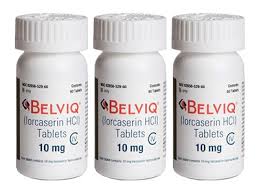Eisai Pharmaceutical, a Japan-based multinational drug firm, has decided to withdraw its antiobesity drug Belviq (Ingredient: lorcaserin) from the U.S. market after reports showed an increase in the incidence of cancer in users.

The announcement came after the U.S. Food and Drug Administration requested the company to take Belviq and Belviq XR off the market on Thursday.
"We are taking this action because we believe that the risks of lorcaserin outweigh its benefits based on our completed review of results from a randomized clinical trial assessing safety," the FDA said. "In January 2020, we announced we were reviewing clinical trial data and alerted the public about a possible risk of cancer associated with lorcaserin based on preliminary analysis of the data."
When FDA approved lorcaserin in 2012, the agency required the drug manufacturer to conduct a randomized, double-blind, placebo-controlled clinical trial, also known as CAMELLIA-TIMI 61, to evaluate the risk of cardiovascular problems, the agency added.
According to the U.S. agency, the study revealed that more patients taking lorcaserin were diagnosed with cancer compared to those taking a placebo.
"The trial was conducted in 12,000 patients over five years, and a range of cancer types was reported, with several different types of cancers occurring more frequently in the lorcaserin group, including pancreatic, colorectal, and lung," the agency added.
In its official report, the FDA also asked patients to stop using the medication Belviq and Belviq XR and talk to their health care professionals about other treatment options for weight loss.
Eisai, while deciding to withdraw the drug from the U.S. market, said that it did not agree with the FDA's interpretation of the clinical trial.
"Eisai's interpretation of the data from the CAMELLIA-TIMI 61 trial differs from that of the FDA," the company said in a statement. "We assess that Belviq and Belviq XR continue to have a positive benefit-risk profile in the patient population for which they are indicated."
Based on the change in FDA's risk-benefit assessment and as requested by the agency, however, Eisai said it has agreed to withdraw the products from the U.S. market voluntarily.
The company added that it respects the FDA's decision and is working closely with the agency on the withdrawal process.
In Korea, the FDA's decision is expected to cause a stir among both patients using the drug and Ildong Pharmaceutical, the local distributor of the drug, as there is a high possibility that the Ministry of Food and Drug Safety will follow the FDA's decision and pull the drug out from the local market.
According to IQVIQ, a drug market research firm, Belviq ranked first in the local obesity treatment market in 2018, with a total sales of 9.8 billion won ($8.2 million). Although the drug has since lost its top position to Novo Nordisk's Saxenda, it still enjoys high demand from patients in Korea
Ildong is known to have voluntarily suspended the sale of Belviq in the local market and started discussions with the relevant authorities.
"After the FDA's decision was made public, we have immediately begun consulting with Eisai and the ministry," an Ildong official said.

